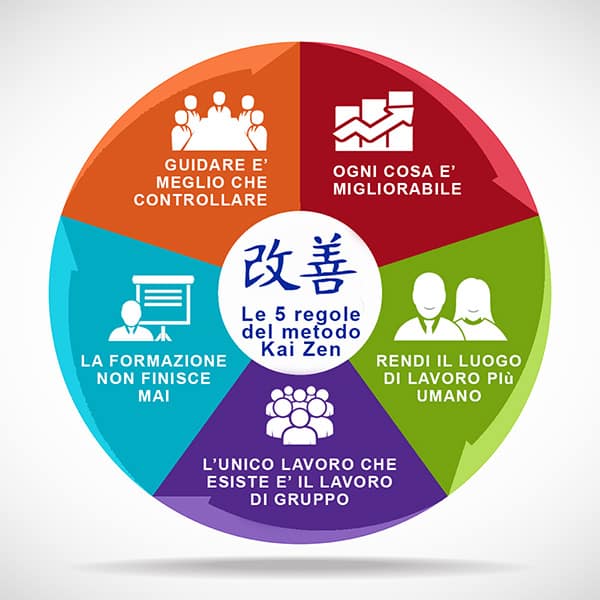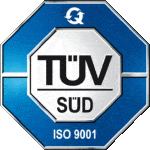“No process can ever be declared perfect, but it can always be improved upon. Kaizen means that throughout the organization, every member of a team seeks to improve how they operate and that people of all levels within the company participate in this improvement process.
Kaizen also requires having clear ideas about what needs to be done, setting goals and objectives for improvement in a well-defined way. It is a positive attitude that focuses on what needs to be done, rather than what can be done ”.
Sakichi Toyoda
The concept of Kaizen it is a cultural background and an operational tool that every logistics manager must know in depth.
The word is composed of two Japanese terms: Kai (change, improvement) and Zen (good, better), it is usually translated with Change for the better, or with Continuous improvement.
The concept summarizes and describes the operational (and cultural) philosophy that it has been since the 1960s at the basis of the successes of the Japanese industry. Philosophy that found especially in the Toyota car manufacturer an emblem of particular interest, given that from the 90s onwards this industry reached top of world automotive production, beating the most famous European and American car manufacturers in terms of the number of vehicles sold and the quality of the product.
After 1945, in the phase of reconstruction of the country after the destruction of the Second World War, the US occupation forces initiated a program to modernize the Japanese production system with the help of two business management consultants: Homer Sarasohn and Charles Protzman, proponents of statistical control methods and the Fordist organization of industry.
This new cultural approach it was grafted onto the particular cultural substratum of Japanese society, of Shinto religious matrix and Zen Buddhist, characterized by a cultural attitude diametrically opposed to the individualist liberalism of the stars and stripes. In Japanese culture the individual is understood as part of a larger body (the nation or the company) e the path of personal improvement it is a tension that runs through the entire life of the individual, who becomes fully human only through the control of the will over the instincts, practicing self-awareness and detachment from one's actions.
Translated into the world of business and production it meant implementing small but constant daily renewal practices in the company routines, encouraging each employee to make improvements, even tiny ones, which added to each other were however able to mark a constant business evolution, which made the organization no longer static but dynamic, resembling a living organism.
The cornerstones of the Kaizen philosophy applied to the production reality of a company are:
- all company personnel, from cleaners to members of the Board of Directors, are involved in the constant improvement process;
- Work exists only as team work;
- the control function (traditionally exercised by the management) is replaced by the leadership function;
- all staff are required to follow continuous training;
- all staff must apply the principles of the scientific method to find and eliminate waste;
- periodically, moments of listening and discussion are instituted, both internal and external (reporting, auditing, monitoring, customer relationship management, etc., etc.);
- the professional figures of the Quality Manager and the Change manager are established;
- the workplace must be subject to an engineering action (five s method).
Kaizen as a quality implementation system has generated over time more efficient production methods whose knowledge is part of the basic training of every logistics manager:
– Lean manufacturing (lean manufacturing);
– Total quality management;
- production Just in Time (reduction of warehouse stocks);
- method Kanban (for the constant supply of raw materials and semi-finished products);
– optimization constant of business processes;
– statistical control processes.

All themes that will be addressed during the our course to become a Logistics Manager.
Sources:
Wikipedia.org
Toyota-forklifts.it









